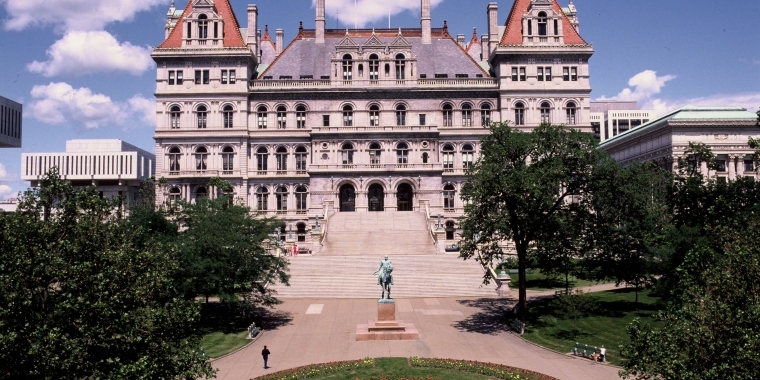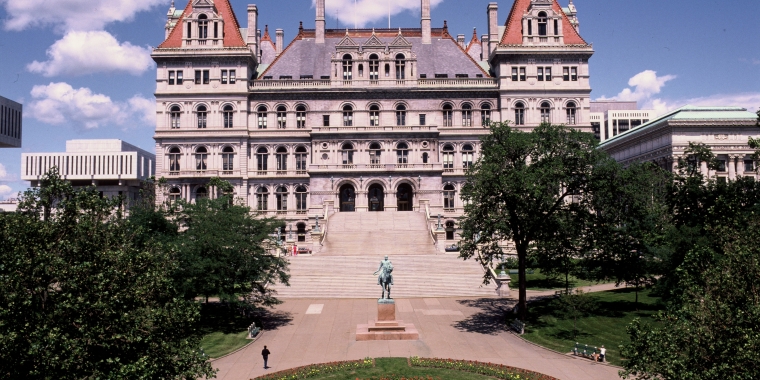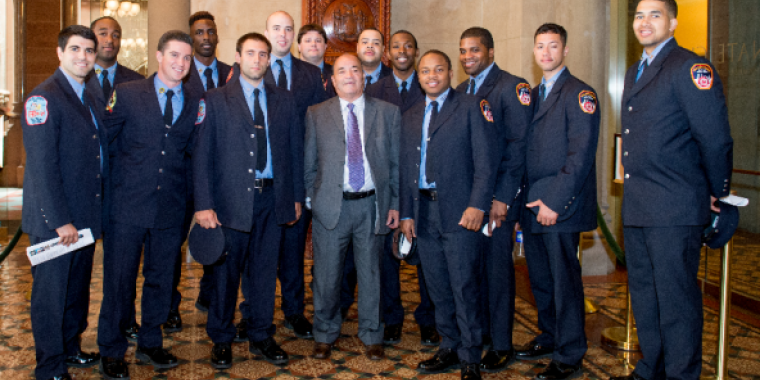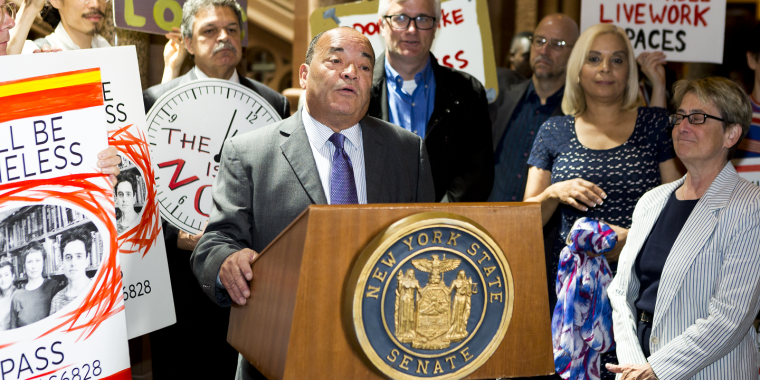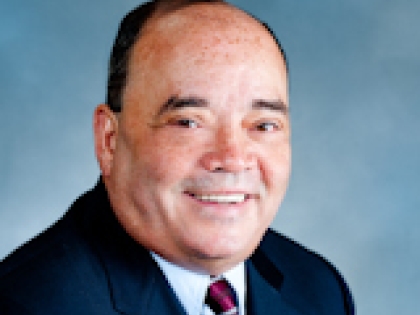
Restore $65M Cut From MTA Budget, City Transit Officials Tell Cuomo
FINANCIAL DISTRICT — City officials and transit advocates are butting heads with state officials over a $65 million cut to MTA funding in Gov. Andrew Cuomo's executive budget.
The money is from a specific allocation Cuomo promised to keep up in 2011 after scaling back a politically unpopular payroll mobility tax that helps fund the transit system.
For six years, Cuomo kept his promise by contributing between $307 and $311 million each year to offset the lost tax revenue — until this year, when the amount was $244 million, a 21 percent reduction.
But state officials, including Cuomo's appointees on the MTA board, insist transit advocates are making a fuss over nothing, because the governor is allocating more money to the MTA this year overall than he did last year.
“The facts here are simple — state aid to the MTA last year was $4.456 billion, and this year it’s $4.486 billion — $30 million more," said Morris Peters of the state Division of Budget. "This is on top of $8.3 billion secured for the MTA capital plan. Calling an increase a cut is absurd even by the advocates’ standards.”
But the advocates worry that allowing the $65 million to be cut from the payroll mobility tax replacement funding pool will set a precedent for less money in the future. They add that some of the additional overall funding to which Cuomo's budget office refers comes from anticipated tax revenue — which is not as reliable as guaranteed funding, they fear.
"This might impact and cause future fare hikes in addition to the one we're expecting in March," Masha Burina of the Riders Alliance said after last week's MTA Finance Committee meeting.
At the meeting, Department of Transportation Commissioner and MTA board member Polly Trottenberg noted that "a good mix of contractors and transit advocates and regular riders" had shown up to speak about the $65 million cut.
"I think I have to just say that the city shares their concern about this $65 million cut in the state budget particularly, as one of the speakers mentioned, in light of the fact that we did just vote for a fare increase," Trottenberg said.
And while Cuomo's appointees on the board, including Finance Committee chair Larry Schwartz, argued the governor's point that the MTA is getting more funding overall, the MTA's November financial plan specifically included an expectation of $311 million in "payroll mobility tax replacement funds."
Riders Alliance held a rally on the issue in Times Square Monday and announced support from 65 state legislators — both Republicans and Democrats — to reinstate the $65 million.
“In the two years after it was created in 2009, the mobility tax had become a third of Metropolitan Transit Authority’s dedicated revenue source. The only way the MTA could accept the 2011 restructuring and maintain operations, was the state’s promise to close the gap as a condition," Brooklyn Sen. Martin Dilan, the Ranking Member on the State Senate Transportation Committee, said in a statement released by Riders Alliance.
"The MTA endured the financial collapse that spurred the tax. It has gone on to endure natural disasters, infrastructure woes, and an unprecedented increase it ridership. Last year the system saw its highest volume in 70 years, some it still relying on pre-WWII infrastructure. We cannot, in good conscience, ask any more of the MTA or its riders,” Dilan added.
